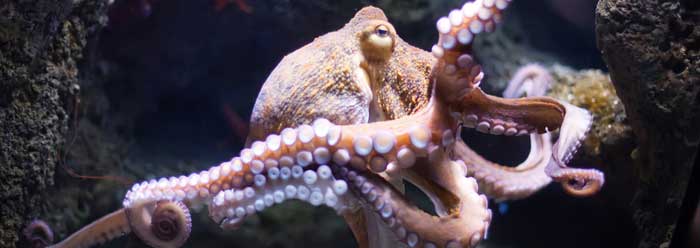Two biologists from Puerto Rico who studied the cephalopods hypothesized "on the basis of conventional natural selection" that the proteins involved in transmitting nerve impulses evolved because the cold water "selected" individual octopuses with cold-adapted mutations. But the research pair, publishing in Science, did not find the anticipated mutations in the animals' genes.1
The scientists compared the genes of an Antarctic octopus with those of a warm-water species. Study co-author Joshua Rosenthal told Science News, "It was a real disappointment at first....We thought there was going to be a difference in their genes, but they were basically identical. It was puzzling."2
However, the researchers went on to discover that an enzyme in octopus nerve cells alters the RNA transcript of a critical gene. The gene is transcribed, but before engaging the cellular protein production facilities, a special enzyme edits the transcript by changing specific chemicals. The resulting protein, which forms a channel through which potassium ions travel to reset the neuron after each impulse, performs its action at the perfect temperature-adjusted speed.
So, octopuses living in cold water use slightly different proteins than those living in tropical waters, even though the proteins of both begin with the same gene. "Thus, in these [protein] channels greater species diversity is generated by RNA editing than by gene mutations," according to the study authors.1
And the specific edits change just those points along the protein that affect speed, thereby adjusting the speed of the whole neuron. Without this or some similar adjustment, "Antarctic [protein] channels would open about 14 times slower and close about 60 times slower than would tropical channels."1
But could the octopuses even survive in cold waters if they had to move their tentacles 60 times slower?
According to standard notions of how species change and adapt, natural selection should have somehow fixed the precisely appropriate mutations into the cold-adapted octopus population. This would have taken eons and would have required more eons in order to change it back to a warm-water version.
But with RNA editing, the octopuses can rapidly diversify and fill watery environments of various temperatures. University of Rochester molecular biologist Yi-Tao Yu, who was not involved in the study, told Science News, "If you just modify the mRNA it's very economical and convenient."2
Leave it to the Creator to have equipped His marine creatures with the appropriate biological mechanisms to enable them to instantly obey His mandate: "Be fruitful, and multiply, and fill the waters in the seas."3 The Lord deserves credit for this "very economical and convenient" octopus attribute, which follows from a benevolent and forward-thinking Creator.
References
- Garrett, S. and J. J. C. Rosenthal. 2012. RNA Editing Underlies Temperature Adaptation in K+ Channels from Polar Octopuses. Science. 335 (6070): 848-851.
- Ehrenberg, R. 2012. Eight-legged evolution exploits editing. Science News. 181 (3): 11.
- Genesis 1:22.
* Mr. Thomas is Science Writer at the Institute for Creation Research.
